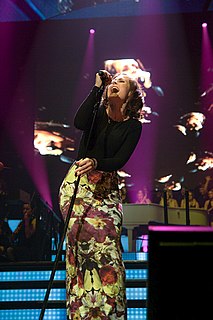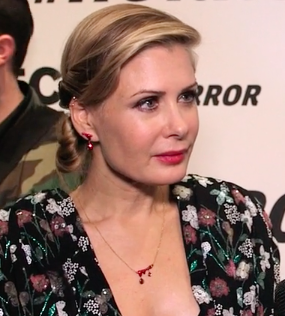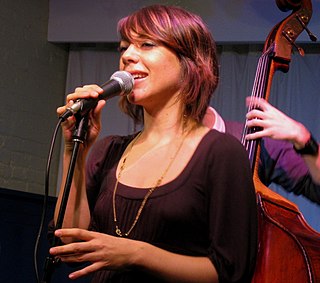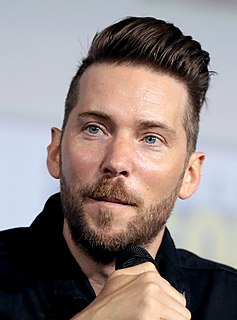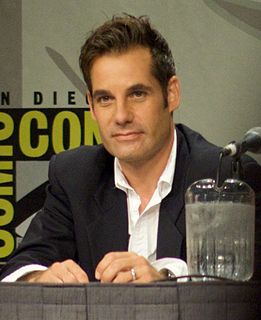A Quote by Ava DuVernay
Many hated 'Selma.' Just because my voice and the voice of the people I come from is antithetical to so much of what Hollywood produces. I don't think what I'm saying is in particular radical or anything; it's just different from what they want to sell.
Related Quotes
I had a hole in my voice. It's an area in the voice where it's air. It's just - there's no - it's just very airy. And my classical teachers were just so frustrated with me because I would have these deep, low notes that were really strong, and the higher register was strong, but right in that middle area, it was really hard. It was like a passage. And many singers go through this and work it out. But I realized in jazz, I could just take advantage of that and take advantage of having a voice that was very different in different areas.
But I'm pretty lucky with my voice. When I first started touring I went to see a woman to give me some coaching on how not to lose my voice. And she was just saying really your voice is a muscle so if you're using it all the time you should actually come back from tour with a stronger voice than you left with. And that's really how I find it.
Many couples, many people, are not living with real human beings, but with their ghosts. Who has not followed for years the spell of a particular tone of voice, from voice to voice, as the fetishist follows a beautiful foot, scarcely seeing the woman herself? A voice, a mouth, an eye, all stemming from the original fountain of our first desire, directing it, enslaving us, until we choose to unravel the fatal web and free ourselves.
I think it's really important that women support each other. I've heard of a very successful female director saying she doesn't identify as being a feminist or a woman in Hollywood. And I understand that, but I feel so differently. It's so important to identify as a woman and have a voice, to understand that it's different from a male voice, and to understand the nuances that go into that. I love women. I think I'm a girl's girl. It's super important that we have a voice in the industry.
When the kirtan is harmonious with so many people, it’s a tumultuous beautiful sound. We can’t hear just one voice during the chorus; or rather we do hear one voice. But that one voice is actually the sound of everyone’s voice in harmony. That’s our offering to God. And why is it so pleasing to the Lord? Because we are all cooperating for a higher purpose. We are all united for the pleasure of the center, for the pleasure of Krishna, in spite of all our differences.
There are certain writers I can't read when I'm trying to write because their voices are so distinct. Cormac McCarthy, he's the most different writer from anything I've ever written, but there's something about those really spare sentences that is just tough - it would be too much of an influence. Grace Paley is my favorite writer. Her stuff is so voice-driven, when I read her a lot I want to make my writing more voice-y and dialogue-heavy. I love a lot of stuff in translation.


